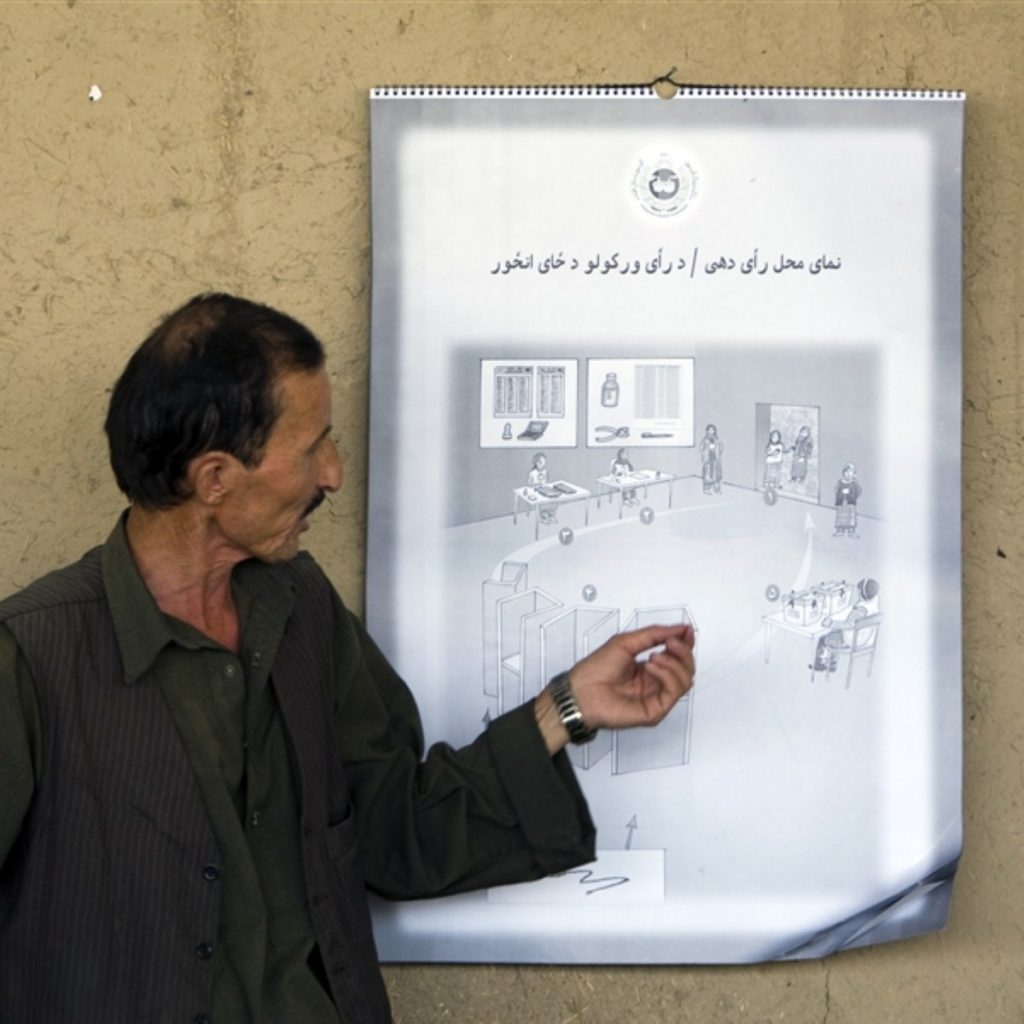Miliband claims victory in Afghan elections
By Alex Stevenson
David Miliband has praised Afghanistan’s security forces after elections across the country passed without the massive disruptions feared.
The foreign secretary said Afghans faced “huge challenges” as the fledgling democracy voted in only its second ever presidential election.
Despite some reports of attacks – one northern town was stormed by the Taliban – the majority of polling stations have remained open.
Afghan elections analysis: A military operation
Afghan elections analysis: A political operation
Britain’s ambassador to Afghanistan, Mark Sedwill, said the violence had been at the “lower end” of expectations.
“Insurgents have tried hard, including through murderous attacks on ordinary civilians and international and Afghan troops, to disrupt these elections and prevent Afghans having their voices heard,” Mr Miliband said.
“Afghan National Security Forces, with international support, have performed strongly – ensuring violence did not make the elections impossible.”
Coalition troops were held in reserve as Afghan security forces and police took the brunt of potential Taliban attacks against polling stations.
It was left to civilians to frisk voters, who turned out despite the risk of terrorist attacks.
Seventeen million voters have been registered since 2004, but not all have been guaranteed secure access to a polling station. In Helmand province, where British forces are stationed, 30 per cent are outside military protection.
The proportion in Helmand would have been much lower if British soldiers had not conducted Operation Panther’s Claw last month.
Taking territory infiltrated by the Taliban between the province’s economic and political capitals is the first step in a new plan of construction for the region.
Across the country, incumbent president Hamid Karzai faced a strong challenge for re-election from three out of 43 candidates, which include two women.
Former foreign minister Abdullah Abdullah was expected to provide the biggest headache, with lawmaker Ramazan Bashardost and renowned economist and ex-minister Ashraf Ghani also tipped to do well.
Results will be published on an incremental basis, with the first indications not expected to emerge for two or three days.
Analysts have pointed out the political significance of the polls rests more on how smoothly they take place, rather than the eventual winner.
The ability of coalition forces to provide secure elections which lead to a credible, legitimate result was the key question to be answered today. Mr Miliband’s comments suggest he believes they have succeeded.
He added: “The effort that has gone into conducting the elections now needs to be matched by careful counting and the formation of a government that can command the active support of the people in beating back the insurgency, building an inclusive political settlement for all those willing to live by the Afghan constitution, and creating a more prosperous and stable state.”





-01.png)